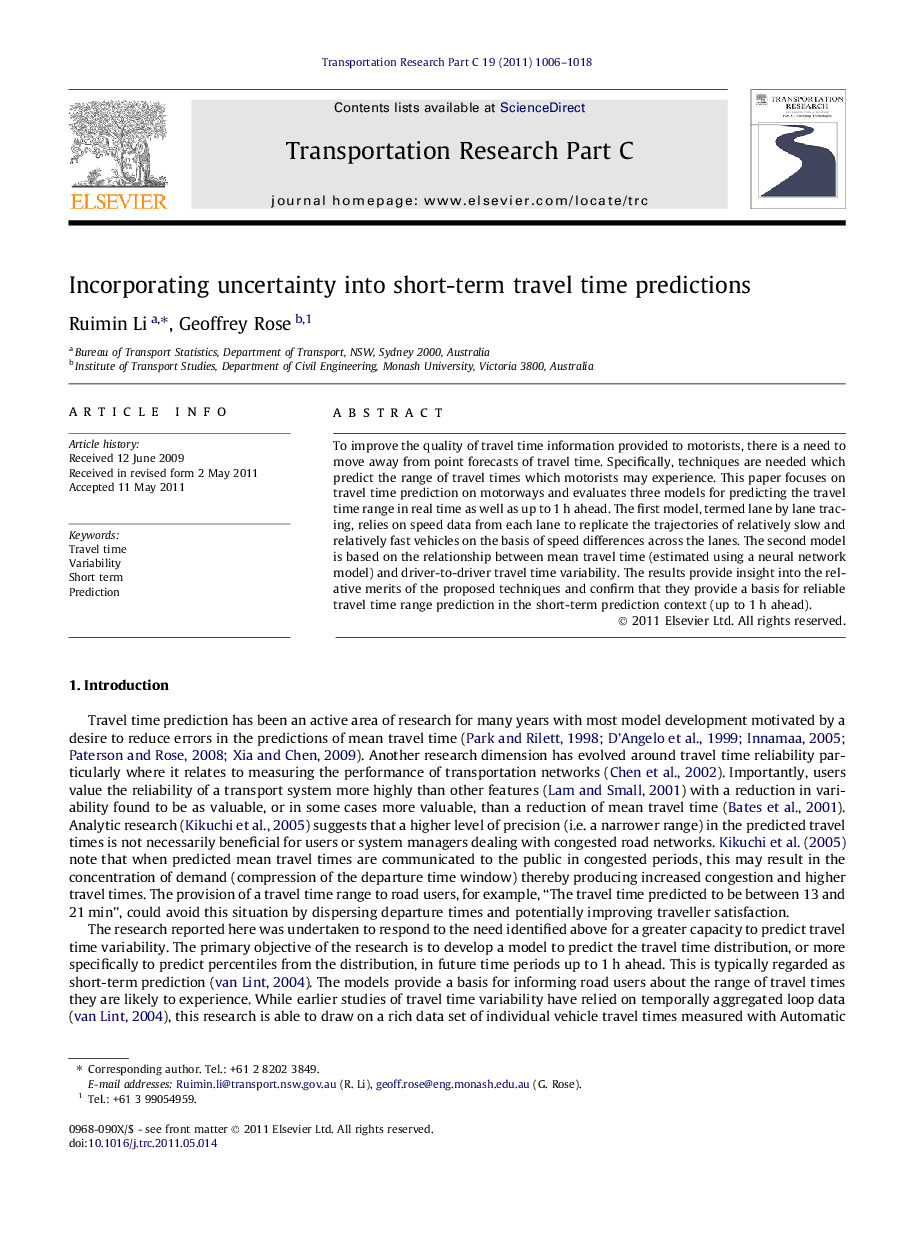| Article ID | Journal | Published Year | Pages | File Type |
|---|---|---|---|---|
| 525231 | Transportation Research Part C: Emerging Technologies | 2011 | 13 Pages |
To improve the quality of travel time information provided to motorists, there is a need to move away from point forecasts of travel time. Specifically, techniques are needed which predict the range of travel times which motorists may experience. This paper focuses on travel time prediction on motorways and evaluates three models for predicting the travel time range in real time as well as up to 1 h ahead. The first model, termed lane by lane tracing, relies on speed data from each lane to replicate the trajectories of relatively slow and relatively fast vehicles on the basis of speed differences across the lanes. The second model is based on the relationship between mean travel time (estimated using a neural network model) and driver-to-driver travel time variability. The results provide insight into the relative merits of the proposed techniques and confirm that they provide a basis for reliable travel time range prediction in the short-term prediction context (up to 1 h ahead).
► This paper focuses on travel time prediction on motorways and evaluates three models for predicting the travel time range in real time as well as up to 1 h ahead. ► The first model relies on speed data from each lane to replicate the trajectories of relatively slow and relatively fast vehicles on the basis of speed differences across the lanes. ► The second model is based on the relationship between mean travel time (estimated using a neural network model) and driver-to-driver travel time variability. ► The final model utilizes the estimated travel time distribution based on the lane-to-lane variation in speed. ► They provide a basis for reliable travel time range prediction in the short-term prediction context (up to 1 h ahead).
